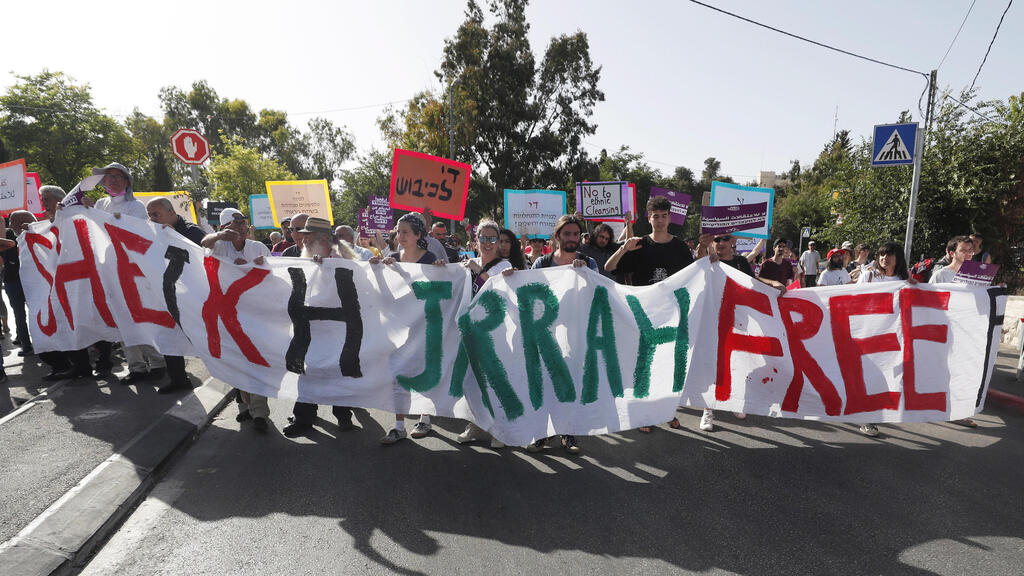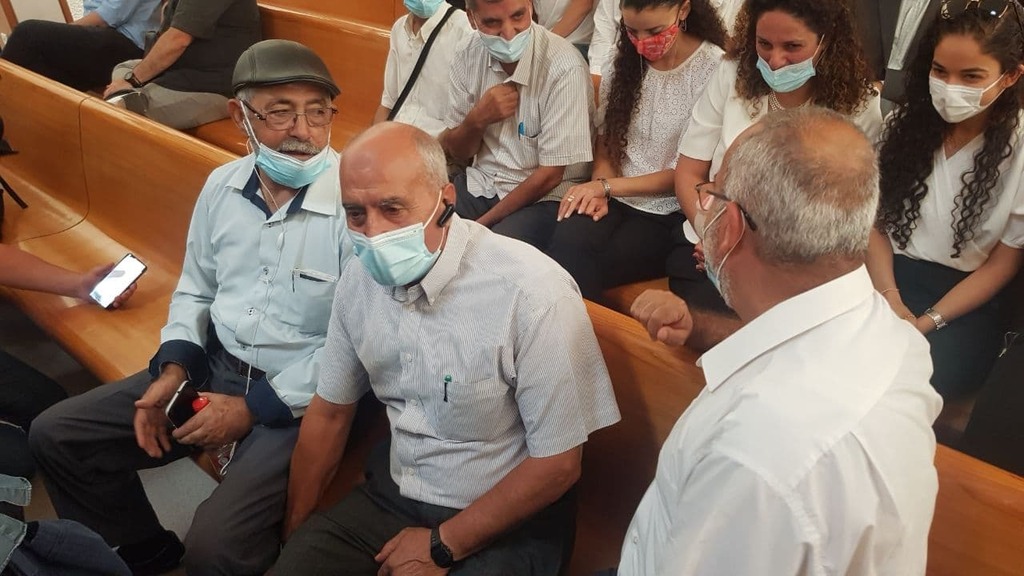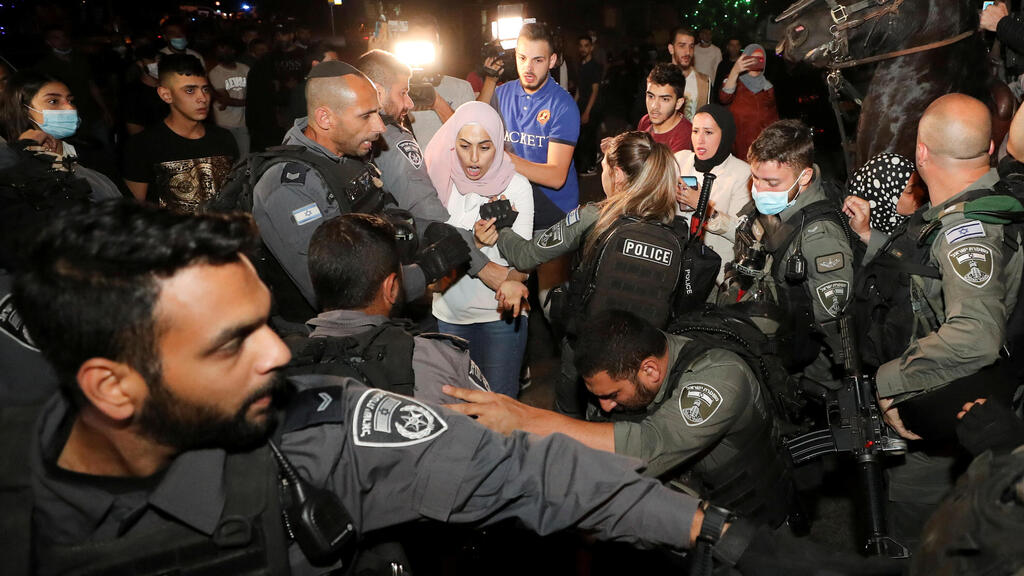Palestinian families on Tuesday rejected an offer that would have delayed their eviction by Jewish settlers in a tense Jerusalem neighborhood, where protests and clashes helped ignite the 11-day Gaza war in May.
The four families in the Sheikh Jarrah neighborhood near the Old City said their decision springs from "our belief in the justice of our cause and our right to our homes and our homeland."
3 View gallery


Demonstrators protesting against the eviction of Jerusalem's Sheikh Jarrah neighborhood, May 2021
(Photo: EPA)
They said that rather than submit to an "unjust agreement" they would rely on the "Palestinian street" to raise international awareness of their plight.
The proposal floated by the Supreme Court earlier this month would have made them "protected tenants," blocking any eviction and demolition order for at least the next 15 years, according to Israeli rights group Ir Amim which closely follows developments in the city.
The families would have still been able to argue their case in Israeli courts. But it would have forced them to at least temporarily attest to the settlers' ownership of the properties, which could weaken the families' case going forward, and pay rent to the settlers.
The families' decision to reject the offer sends the matter back to the Supreme Court, which could approve the evictions and pave the way for them to be carried out in the coming weeks.
3 View gallery


Members of the Sheikh Jarrah families during a Supreme Court hearing, August 2021
(Photo: Alex Gamburg)
The four families — who say the Jordanian government granted them the land on which their homes were later built in 1948 — are among dozens in Jerusalem who are threatened with eviction by Jewish settler organizations in several cases that have been working their way through the Israeli court system for decades.
The settlers are making use of an Israeli law that allows them to claim properties that were owned by Jews prior to the 1948 War of Independence surrounding Israel's creation.
There was no immediate comment from the settlers, but Jerusalem Deputy Mayor Arieh King, a staunch supporter, said they had accepted the offer.
Israel has portrayed the matter as a private real-estate dispute, but the Palestinians and human rights groups view it as a coordinated attempt to push Palestinian residents out of Jerusalem and change the city's identity.
3 View gallery


Palestinians clash with police in the Sheikh Jarrah neighborhood in Jerusalem, May 4, 2021
(Photo: Reuters)
The U.S. has spoken out against the evictions, saying it undermines efforts to eventually revive the long-dormant peace process.
Israel captured East Jerusalem, along with the West Bank and the Gaza Strip, in the 1967 Six-Day War. The Palestinians want all three territories to form their future state and consider East Jerusalem their capital. Jordan supports their claims.

